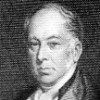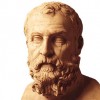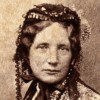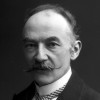Quotations about:
honesty
Note not all quotations have been tagged, so Search may find additional quotes on this topic.
Wherever a Knave is not punished, an honest Man is laugh’d at.
George Savile, Marquis of Halifax (1633-1695) English politician and essayist
“Of Punishment,” Political, Moral, and Miscellaneous Thoughts and Reflections (1750)
(Source)
He who will please the crowd and for the sake of the most ephemeral renown will either proclaim those things which nature does not display or even will publish genuine miracles of nature without regard to deeper causes is a spiritually corrupt person.
Let’s work hard at being real. This means we are free to question, to admit failure or weakness, to confess wrong, to declare the truth. When a person is authentic, he or she does not have to win or always be in the top ten or make a big impression or look super-duper pious. […] Authentic people usually enjoy life more than most. They don’t take
themselves so seriously. They actually laugh and cry and think more freely because they have nothing to prove — no big image to protect, no role to play. They have no fear of being found out, because they’re not hiding anything.
In disputes upon moral or scientific points, ever let your aim be to come at truth, not to conquer your opponent: so you never shall be at a loss in losing the argument, and gaining a new discovery.
James Burgh (1714-1775) British politician and writer
The Dignity of Human Nature, Sec. 5 “Miscellaneous Thoughts on Prudence in Conversation” (1754)
(Source)
If you have a friend that will reprove your faults and foibles, consider you enjoy a blessing which the king upon the throne cannot have.
James Burgh (1714-1775) British politician and writer
The Dignity of Human Nature, Sec. 5 “Miscellaneous Thoughts on Prudence in Conversation” (1754)
(Source)
Always side with the truth. It’s much bigger than you are.
Teresa Nielsen Hayden (b. 1956) American editor, writer, essayist
Making Light, “Commonplaces”
(Source)
Neither human applause nor human censure is to be taken as the test of truth. He who should satisfy himself either with being popular, or with being unpopular, would equally be taking man’s judgment for his standard. But either the one or the other should set us upon careful self-examination.
Richard Whately (1787-1863) English logician, theologian, archbishop
Sermon, Christ Church, Dublin (22 Oct 1837)
(Source)
Without debate, without criticism, no Administration and no country can succeed — and no republic can survive. That is why the Athenian lawmaker Solon decreed it a crime for any citizen to shrink from controversy. And that is why our press was protected by the First Amendment — the only business in America specifically protected by the Constitution — not primarily to amuse and entertain, not to emphasize the trivial and the sentimental, not to simply “give the public what it wants” — but to inform, to arouse, to reflect, to state our dangers and our opportunities, to indicate our crises and our choices, to lead, mold, educate and sometimes even anger public opinion.
John F. Kennedy (1917-1963) US President (1961-63)
Speech, American Newspaper Publishers Association (27 Apr 1961)
(Source)
The trouble with writing a book about yourself is that you can’t fool around. If you write about someone else, you can stretch the truth from here to Finland. If you write about yourself the slightest deviation makes you realize instantly that there may be honor among thieves, but you are just a dirty liar.
He that applauds him who does not deserve praise, is endeavoring to deceive the public; he that hisses in malice or sport, is an oppressor and a robber.
Samuel Johnson (1709-1784) English writer, lexicographer, critic
The Idler, #25 (7 Oct 1758)
(Source)
No President should fear public scrutiny of his program. For from that scrutiny comes understanding; and from that understanding comes support or opposition. And both are necessary.
John F. Kennedy (1917-1963) US President (1961-63)
Speech, American Newspaper Publishers Association (27 Apr 1961)
(Source)
No one shows himself as he is, but wears his mask and plays his part. Indeed, the whole of our social arrangements may be likened to a perpetual comedy; and this is why a man who is worth anything finds society so insipid, while a blockhead is quite at home in it.
[Allerdings zeigt Keiner sich wie er ist, sondern Jeder trägt eine Maske und spielt eine Rolle. — Ueber haupt ist das ganze gesellschaftliche Leben ein fortwährendes Komödienspielen. Dies macht es gehaltvollen Leuten insipid; während Plattköpfe sich so recht darin gefallen.]
Arthur Schopenhauer (1788-1860) German philosopher
Parerga and Paralipomena, Vol. 2, ch. 26 “Psychological Observations [Psychologische Bemerkungen],” § 315 (1851) [tr. Saunders (1890)]
(Source)
(Source (German)). Alternate translation:
It is quite certain that no one shows himself as he is, but that each wears a mask and plays a role. In general, the whole of social life is a continual comedy, which the worthy find insipid, whilst the stupid delight in it greatly.
[tr. Dircks (1897)]
No one reveals himself as he is; we all wear a mask and play a role.
[tr. Hollingdale (1970)]
It is certain that no one shows himself as he is, but everyone wears a mask and plays a part. Generally speaking, the whole of our social life is the continuous performance of a comedy. This renders it insipid for men of substances and merit, whereas blockheads take a real delight in it.
[tr. Payne (1974)]
Let us speak, though we show all our faults and weaknesses — for it is a sign of strength to be weak, to know it, and out with it — not in a set way and ostentatiously, but incidentally and without premeditation.
Let us say what we feel, and feel what we say; let speech harmonize with life.
You need not tell all the truth, unless to those who have a right to know it all. But let all you tell be truth.
James Burgh (1714-1775) British politician and writer
The Dignity of Human Nature, Sec. 5 “Miscellaneous Thoughts on Prudence in Conversation” (1754)
(Source)
Every man takes care that his neighbor shall not cheat him. But a day comes when he begins to care that he do not cheat his neighbor. Then all goes well. He has changed his market cart for a chariot of the sun.
Ralph Waldo Emerson (1803-1882) American essayist, lecturer, poet
“Worship,” The Conduct of Life, ch. 6 (1860)
(Source)
Writers the most learned, the most accurate in details, and the soundest in tendency, frequently fall into a habit which can neither be cured nor pardoned — the habit of making history into the proof of their theories.
John Dalberg, Lord Acton (1834-1902) British historian
“The History of Freedom in Antiquity,” Speech, Bridgenorth Institute (28 Feb 1877)
(Source)
A man who himself does not believe what he tells another … has even less worth than if he were a mere thing. For a thing, as something real and given, has the property of being serviceable. … But the man who communicates his thoughts to someone in words which yet (intentionally) contain the contrary of what he thinks on the subject has a purpose directly opposed to the natural purposiveness of the power of communicating one’s thoughts, and therefore renounces his personality and makes himself a mere deceptive appearance of man, not man himself.
ADVICE TO PERSONS ABOUT TO WRITE HISTORY — DON’T.
In the Moral Sciences Prejudice is Dishonesty.
A Historian has to fight against temptations special to his mode of life, temptations from Country, Class, Church, College, Party, Authority of talents, solicitation of friends.
The most respectable of these influences are the most dangerous.
The historian who neglects to root them out is exactly like a juror who votes according to his personal likes or dislikes.
In judging men and things Ethics go before Dogma, Politics or Nationality.
The Ethics of History cannot be denominational.
Judge not according to the orthodox standard of a system religious, philosophical, political, but according as things promote, or fail to promote the delicacy, integrity, and authority of Conscience.
Put conscience above both system and success.
History provides neither compensation for suffering nor penalties for wrong.
The inflexible integrity of the moral code is, to me, the secret of the authority, the dignity, the utility of History. If we may debase the currency for the sake of genius, or success, or rank, or reputation, we may debase it for the sake of a man’s influence, of his religion, of his party, of the good cause which prospers by his credit and suffers by his disgrace. Then History ceases to be a science, an arbiter of controversy, a guide of the Wanderer, the upholder of that moral standard which the powers of earth and religion itself tend constantly to depress. It serves where it ought to reign; and it serves the worst cause better than the purest.
The first step toward greatness is to be honest, says the proverb; but the proverb fails to state the case strong enough. Honesty is not only “the first step toward greatness,” — it is greatness itself.
Christian Nestell Bovee (1820-1904) American epigrammatist, writer, publisher
Intuitions and Summaries of Thought, vol. 1 (1862)
(Source)
DUKE SENIOR: Sweet are the uses of adversity,
Which, like the toad, ugly and venomous,
Wears yet a precious jewel in his head.William Shakespeare (1564-1616) English dramatist and poet
As You Like It, Act 2, sc. 1, l. 12ff (2.1.12-14) (1599)
(Source)
Most people today don’t want honest answers insofar as honest means unpleasant or disturbing. They want a soft answer that turneth away anxiety. They want answers that are, in effect, escapes.
A fair & honest narrative of the bad is a voucher for the truth of the good.
Thomas Jefferson (1743-1826) American political philosopher, polymath, statesman, US President (1801-09)
Letter to Matthew Carey (19 Jun 1813)
(Source)
In the original, spelled "Mathew Carey"; in some sources, misidentified as "Matthew Carr."
If ever you find yourself environed with difficulties and perplexing circumstances out of which you are at a loss how to extricate yourself, do what is right, and be assured that that will extricate you the best out of the worst situations. Though you cannot see when you take one step what will be the next, yet follow truth, justice and plain dealing, and never fear their leading you out of the labyrinth in the easiest manner possible. The knot which you thought a Gordian one will untie itself before you. Nothing is so mistaken as the supposition that a person is to extricate himself from a difficulty by intrigue, by chicanery, by dissimulation, by trimming, by an untruth, by an injustice. This increases the difficulties tenfold; and those who pursue these methods get themselves so involved at length that they can turn no way but their infamy becomes more exposed.
Thomas Jefferson (1743-1826) American political philosopher, polymath, statesman, US President (1801-09)
Letter to Peter Carr (19 Aug 1785)
(Source)
The great principles of right and wrong are legible to every reader; to pursue them requires not the aid of many counsellors. The whole art of government consists in the art of being honest. Only aim to do your duty, and mankind will give you credit where you fail.
Thomas Jefferson (1743-1826) American political philosopher, polymath, statesman, US President (1801-09)
“A Summary View of the Rights of British America” (1774)
(Source)
Addressed to King George III.
Better be cheated in the price than in the quality of goods.
[Más vale ser engañado en el precio que en la mercadería.]
Baltasar Gracián y Morales (1601-1658) Spanish Jesuit priest, writer, philosopher
The Art of Worldly Wisdom [Oráculo Manual y Arte de Prudencia], § 157 (1647) [tr. Jacobs (1892)]
(Source)
(Source (Spanish)). Alternate translations:
It is better to be deceived in the Price, than in the Commodity.
[Flesher ed. (1685)]
Far better to be cheated in the price, than in the goods.
[tr. Fischer (1937)]
Better to be cheated by the price than by the merchandise.
[tr. Maurer (1992)]
Gentlemen, you can never make me believe — no statute can ever convince me, that there is any infinite Being in this universe who hates an honest man. It is impossible to satisfy me that there is any God, or can be any God, who holds in abhorrence a soul that has the courage to express his thought. Neither can the whole world convince me that any man should be punished, either in this world or in the next, for being candid with his fellow-men. If you send men to the penitentiary for speaking their thoughts, for endeavoring to enlighten their fellows, then the penitentiary will become a place of honor, and the victim will step from it — not stained, not disgraced, but clad in robes of glory.
Robert Green Ingersoll (1833-1899) American lawyer, agnostic, orator
Trial of C.B. Reynolds for blasphemy (May 1887)
(Source)
A Man that should call everything by its right Name, would hardly pass the Streets without being knock’d down as a common Enemy.
George Savile, Marquis of Halifax (1633-1695) English politician and essayist
“Of Caution and Suspicion,” Political, Moral and Miscellaneous Thoughts and Reflections (1750)
(Source)
Govern thy Life and Thoughts, as if the whole World were to see the one, and read the other.
Thomas Fuller (1654-1734) English physician, preacher, aphorist, writer
Introductio ad Prudentiam, # 417 (1725)
(Source)
MARIANA: No legacy is so rich as honesty.
William Shakespeare (1564-1616) English dramatist and poet
All’s Well that Ends Well, Act 3, sc. 5, l. 13 (3.5.13) (1602?)
(Source)
Men are disposed to live honestly, if the means of doing so are open to them.
Thomas Jefferson (1743-1826) American political philosopher, polymath, statesman, US President (1801-09)
Letter to François de Marbois (14 Jun 1817)
(Source)
When the issue is one of Truth and Justice, there can be no differentiating between small problems and great ones. For the general viewpoints on human behaviour are indivisible. People who fail to regard the truth seriously in small matters, cannot be trusted in matters that are great.
[Wenn es sich um Wahrheit und Gerechtigkeit handelt, gibt es nicht die Unterscheidung zwischen kleinen und grossen Problemen. Denn die allgemeinen Gesichtspunkte, die das Handeln der Menschen betreffen, sind unteilbar. Wer es in kleinen Dingen mit der Wahrheit nicht ernst nimmt, dem kann man auch in grossen Dingen nicht vertrauen …]
There are very few honest friends — the demand is not particularly great.
[Es gibt wenig aufrichtige Freunde. Die Nachfrage ist auch gering.]
Marie von Ebner-Eschenbach (1830-1916) Austrian writer
Aphorisms [Aphorismen], No. 528 (1880) [tr. Scrase & Mieder (1994)]
(Source)
There are worse things than losing an election; the worst thing is to lose one’s convictions and not tell the people the truth.
The truth is the kindest thing we can give folks in the end.
Harriet Beecher Stowe (1811-1896) American author
The Pearl of Orr’s Island, ch. 36 [Aunt Roxy] (1869)
(Source)
When man appears before the Throne of Judgment, the first question he is asked is not: “Have you believed in God?” or “Have you prayed and observed the ritual?” He is asked: “Have you dealt honorably and faithfully in all your dealings with your fellow man?”
If all hearts were open and all desires known — as they would be if people showed their souls — how many gapings, sighings, clenched fists, knotted brows, broad grins, and red eyes should we see in the market-place!
Among the smaller duties of life I hardly know any one more important than that of not praising where praise is not due.
Sydney Smith (1771-1845) English clergyman, essayist, wit
Elementary Sketches of Moral Philosophy, Lecture 9 “On the Conduct of Understanding” (1849)
(Source)
Based on a lecture in a series given at the Royal Institution (1804-1806).
Intellectual honesty and obvious sincerity carry more conviction than was ever accomplished by mere utterance. The advocate can make no greater mistake than to ignore or attempt to conceal the weak points in his case. The most effective strategy is at an early stage of the argument to invite attention to your weakest point before the court has discovered it, then to meet it with the best answers at your disposal, to deal with all the remaining points with equal candor, and to end with as powerful a presentation of your strongest point as you are capable of making.
George W. Pepper (1867-1961) American lawyer, law professor, politician
Letter to Eugene Gerhart (1951-12-10)
(Source)
Quoted in Gerhart, America's Advocate: Robert H. Jackson, ch. 24 (1958).
Autobiography is only to be trusted when it reveals something disgraceful. A man who gives a good account of himself is probably lying, since any life when viewed from the inside is simply a series of defeats.
George Orwell (1903-1950) English writer [pseud. of Eric Arthur Blair]
“Benefit of Clergy: Some Notes on Salvador Dali,” opening words (1944)
(Source)
It will presumably be thought better, indeed one’s duty, to do away with even what is close to one’s heart in order to preserve the truth, especially when one is a philosopher. For one might love both, but it is nevertheless a sacred duty to prefer the truth to one’s friends.
[ἀληθείας καὶ τὰ οἰκεῖα ἀναιρεῖν, ἄλλως τε καὶ φιλοσόφους ὄντας: ἀμφοῖν γὰρ ὄντοιν φίλοιν ὅσιον προτιμᾶν τὴν ἀλήθειαν.]
Aristotle (384-322 BC) Greek philosopher
Nicomachean Ethics [Ἠθικὰ Νικομάχεια], Book 1, ch. 6 (1.6, 1096a.15) (c. 325 BC) [tr. Crisp (2000)]
(Source)
This is actually not given as a general guideline for living life, but specifically about offering a philosophical argument in opposition that offered by friends. (Source (Greek)). Alternate translations:
Still perhaps it may appear better, nay to be our duty where the safety of the truth is concerned, to upset if need be even our own theories, specially as we are lovers of wisdom: for since both are dear to us, we are bound to prefer the truth.
[tr. Chase (1847), ch. 3]
And yet, where the interests of truth are at actual stake, we ought, perhaps, to sacrifice even that which is our own -- if, at least, we are to lay any claim to a philosophic spirit. Both are dear to us alike, but truth must be religiously preserved.
[tr. Williams (1869)]
Yet it will perhaps seem the best, and indeed the right course, at least when the truth is at stake, to go so far as to sacrifice what is near and dear to us, especially as we are philosophers. For friends and truth are both dear to us, but it is a sacred duty to prefer the truth.
[tr. Welldon (1892)]
In the interests of truth we ought to sacrifice even what is nearest to us, especially as we call ourselves philosophers. Both are dear to us, but it is a sacred duty to give the preference to truth.
[tr. Peters (1893)]
Yet it would perhaps be thought to be better, indeed to be our duty, for the sake of maintaining the truth even to destroy what touches us closely, especially as we are philosophers or lovers of wisdom; for, while both are dear, piety requires us to honour truth above our friends.
[tr. Ross (1908)]
Still perhaps it would appear desirable, and indeed it would seem to be obligatory, especially for a philosopher, to sacrifice even one's closest personal ties in defense of the truth. Both are dear to us, yet 'tis our duty to prefer the truth.
[tr. Rackham (1934)]
Yet it would seem better, perhaps, and something we should do, at any rate when the preservation of the truth is at stake, to confute even what is properly our own, most of all because we are philosophers. For while we love both our friends and the truth, it is a pious thing to accord greater honor to the truth.
[tr. Reeve (1948)]
Yet it would perhaps be thought better, and also our duty, to forsake even what is close to us in order to preserve the truth, especially as we are philosophers; for while both are dear, it is sacred to honor truth above friendship.
[tr. Apostle (1975), ch. 4]
Yet surely it would be thought better, or rather necessary (above all for philosophers), to refute, in defence of truth , even views to which one is attached; since both are dear, it is right to give preference to the truth.
[tr. Thomson/Tredennick (1976)]
Still, it presumably seems better, indeed only right, to destroy even what is close to us if that is the way to preserve truth. And we must especially do this when we are philosophers, lovers of wisdom; for though we love both the truth and our friends, piety requires us to honor the truth first.
[tr. Irwin/Fine (1995)]
But perhaps it might be held to be better, in fact to be obligatory, at least for the sake of preserving the truth, to do away with even one's own things, especially for those who are philosophers. For although both are clear, it is a pious thing to honor the truth first.
[tr. Bartlett/Collins (2011)]










































